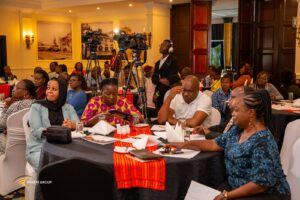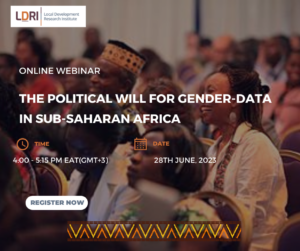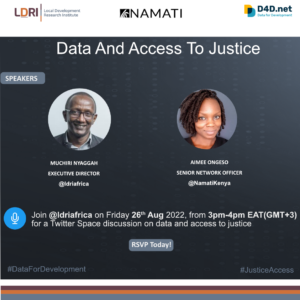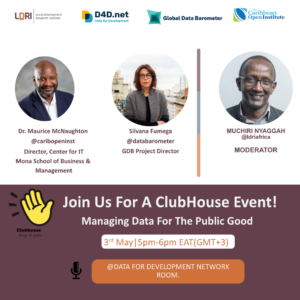![]()
Using ICT & Data Literacy Towards The Africa We Want
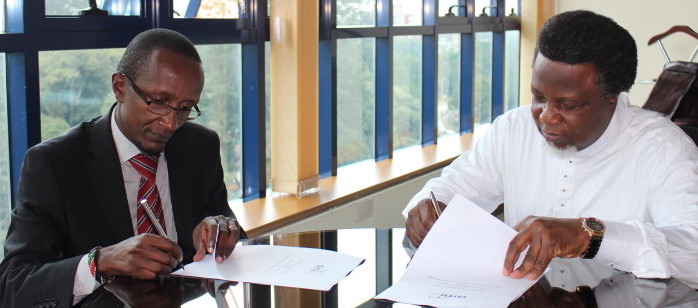

A great deal is changing in the media landscape in Africa. Despite the difficulties faced by journalists when covering stories of great interest to citizens and of vital importance to the strengthening of democracy, the industry still continues to grow. Some of this growth is on the crest of a surge in internet adoption and the fastest growing mobile subscription rate in the world. We are at a point in time where the term “digital divide” no longer simply means those with access to digital platforms vis-à-vis those without but more a nuanced expression of the continuum of access to use through the acquisition of skills/knowledge. The reality in Africa is that device costs are dropping, technology is changing fast, economies are growing and people, especially those leaving closer to the bottom of the economic pyramid, are spending more money on ICT than ever before.
Last week, LDRI and African Media Initiative (AMI) announced a partnership through which we shall provide AMI and its community of media practitioners with technology and data literacy training within the context of rapidly transforming operating landscape. A free, vibrant and responsible media continues to be vital to the growth of democracy in Africa especially because it contributes to an environment in which citizens can acquire the information, data and interest to exercise their agency. At LDRI we bring our user-centered design experience to this partnership by designing the curriculum around the expressed needs of editors, journalists and commercial managers so that the content of the workshops is immediately applicable, has high utility value and can be replicated quickly.
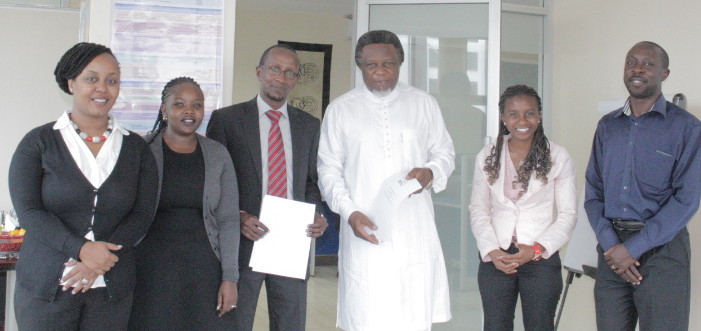
Our approach to technology and data literacy in the media is somewhat different to that taken by some of our colleagues in the space or our predecessors in the Digital Innovations Program. However, it doesn’t mean that one approach is wrong or necessarily ineffective. It simply means we deliver high utility skills and experiences for participants who need the specific skillsets we bring to the ecosystem. Our intention is not to turn journalists into data scientists or computer programmers by teaching them high-end computing skills but to provide them with the skills and knowledge they need to leverage the growth of ICT and the availability of infrastructure in delivering engaging, evidence-based content that answers the question “so what?” In addition, we aim to deliver the insights that media organisations on the continent need to leverage the innovators and home-grown solutions available to overcome the challenges African media organisations face in pursuit of growth.
One such home-grown innovator is Angani, an infrastructure provider revolutionalising how media organisations archive, retrieve and monetize their content. The disaster recovery and business continuity solutions they deliver coupled with their content delivery technology make them a truly innovative provider of services that will enable Africa’s media to make unprecedented leaps beyond their peers in the West. In just over a year of being in existence, they are already having a significant impact on media organisations that have signed up with them demonstrating that African expertise when brought to bear on Africa’s challenges can deliver lasting impact. Fast.
We are excited to be working with AMI and other partners such as Angani because we see in these organisations a genuine desire to support Africa’s media industry and provide the platforms and human capital for Africa to tell its own story. As African Union member states work towards domestication of Agenda 2063 and the Sustainable Development Goals in 2016 and beyond, the media will be our biggest asset in telling this story from our perspective. We are the only ones who can break the narrative framed by the single story told of Africa centered on disease, war, corruption and hunger. The other side needs to be told too and ICT makes it possible to tell it from the grassroots to the regional level.
Together with the continent’s pan African institutions, we believe it is possible to not only realize an African Renaissance but to realize a more inclusive awakening of the African psyche to drive progress towards the achievement of Agenda 2063.
Through partnerships with a diverse selection of stakeholders, we believe it is possible to make Africa’s media industry the trailblazer for sustainable media innovation in the world.
Through innovation in digital media platforms we believe it is possible for the industry to contribute to wealth and job creation for our youth and contribute to peace, security and inclusive economic growth in Africa.
We believe the Africa we want is possible.

